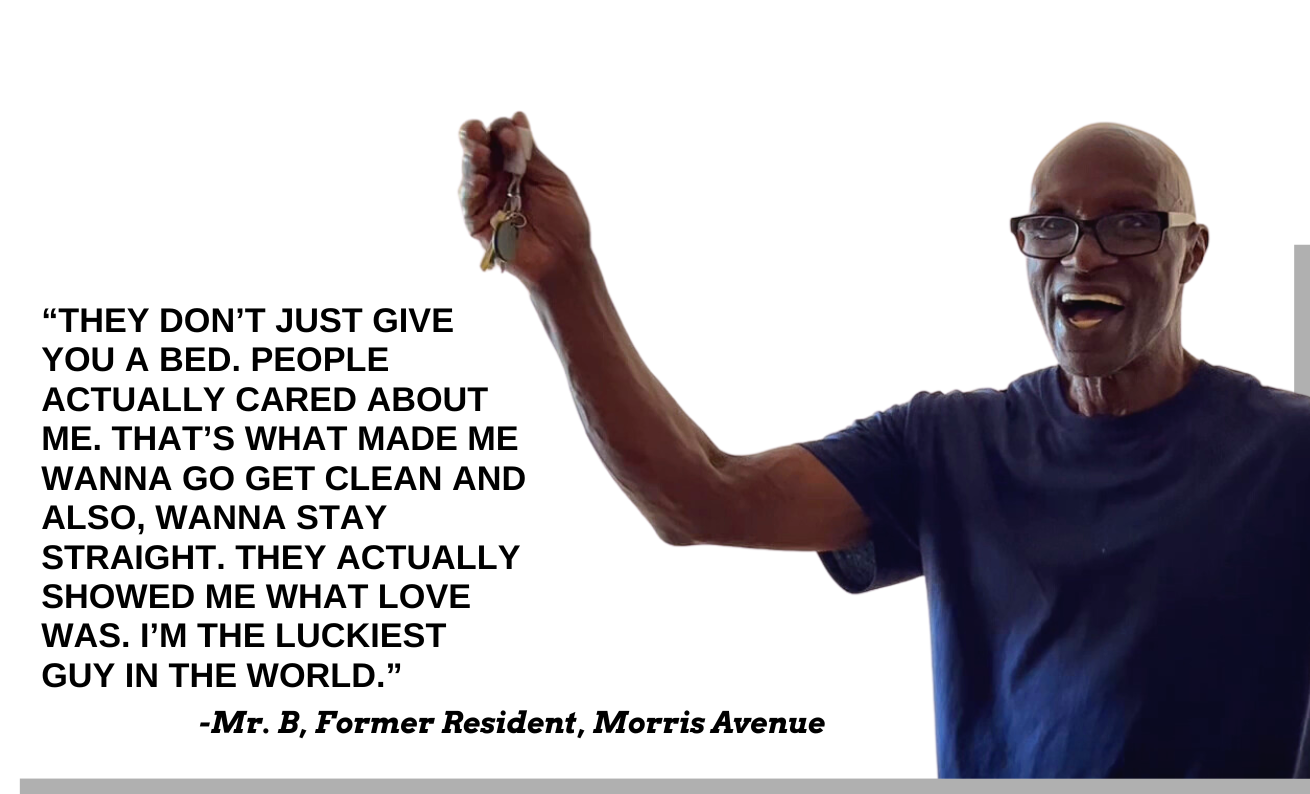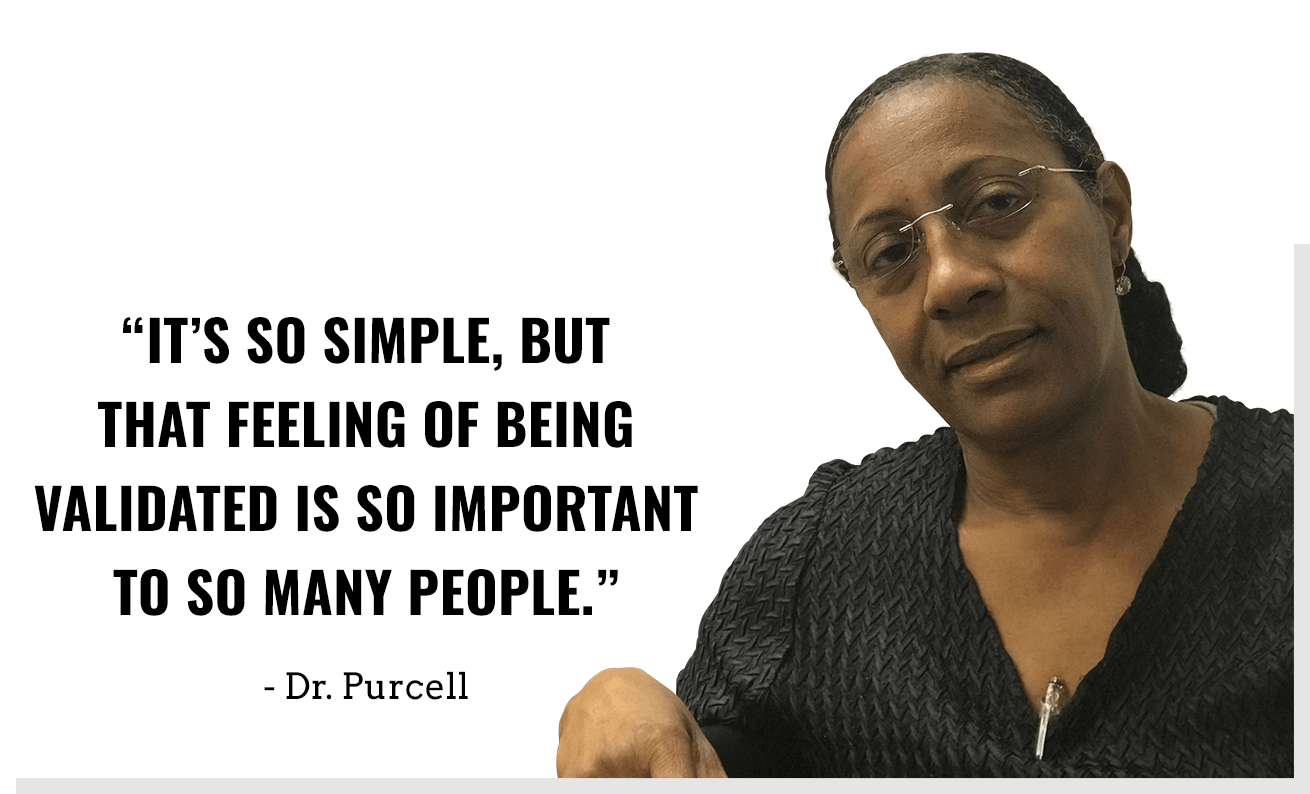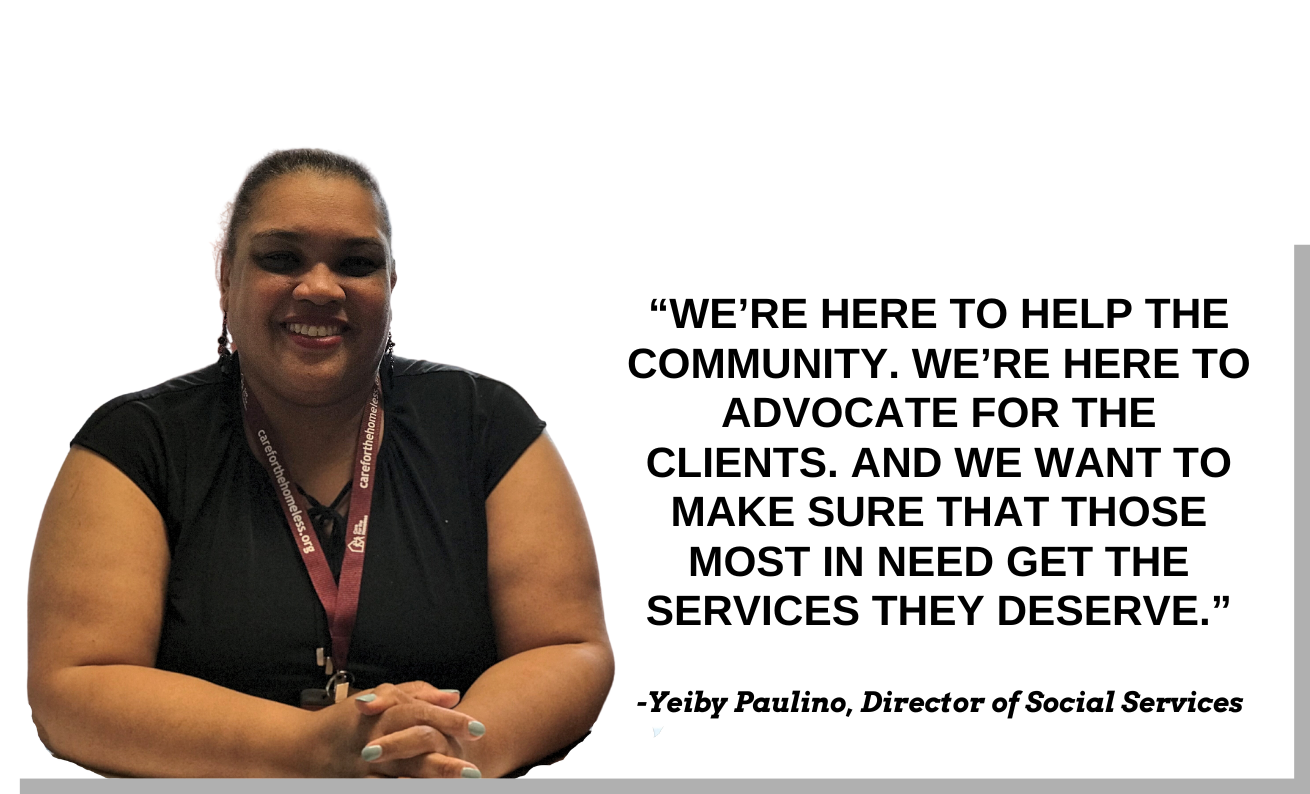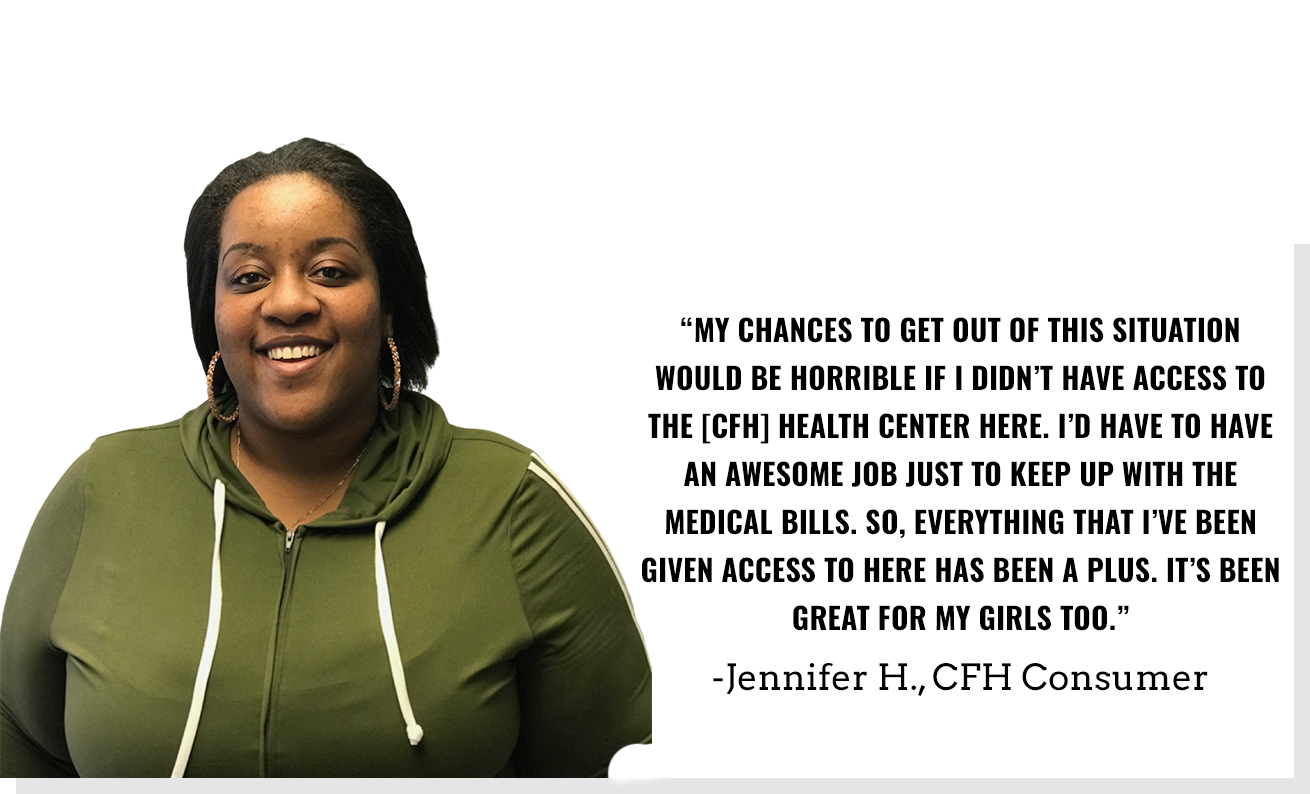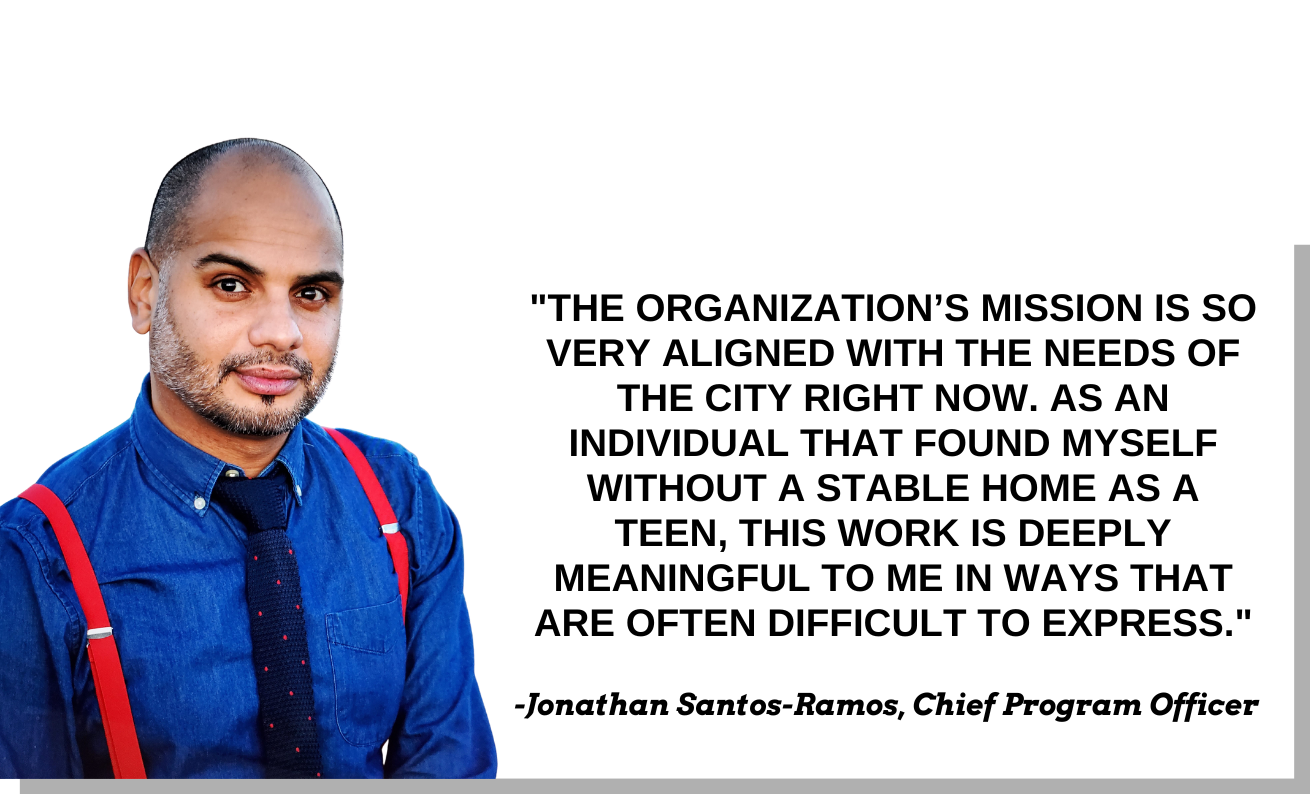“At CFH, you are a priority and you matter”
This interview has been edited for length and clarity.
Hi, my name is Justin Fiore. I am the Shelter Director for the Blondell Avenue men’s shelter for Care For the Homeless. I’ve been with Care for the Homeless for about three-and-a-half years now.
What is Blondell Avenue and what is its purpose?
We’re located near Westchester Square in the Bronx. The surrounding areas include Morris Park, [Montefiore] Einstein Hospital, and Jacobi [Hospital].
We are a 200-men mental health facility and our main purpose is to bring in and take care of homeless men. We look to place them in housing, either CityFHEPS, meaning independent living, or [HRA] 2010e Supportive Housing.
That is our main purpose: To help these guys get shelter.
What does your role entail?
My role entails the overall well-being of the shelter: Helping clients with housing, helping our staff, managing the building—just running the whole show.
Why did you want to come to Blondell Avenue?
It was a phenomenal opportunity, a great step up in our program here and where we’re going with [President & CEO George Nashak’s] direction. It’s a great opportunity, it’s a nice promotion for me, and I’ll really be able to have my hands more in with the day-to-day operations.
It’s all going to fall on me, which I’m proud to take on. I’m really proud to take that on and I’m really proud they offered it to me. I’m not looking to let anybody down. and I’m looking to help Care For the Homeless step into the next century, or the next decade, let’s say.
I’m really looking forward to it and to watching this company grow, with our healthcare being our main focus here for these guys. I know that’s our main focus, but being on the shelter side, you really work to tie these two together, since we do have a full Article 28 healthcare facility on site here. Which is just a bonus to have, to be able to offer our clients. So I’m just really looking forward to moving forward with CFH.
What are your goals as Shelter Director of Blondell Avenue?
My goal is to impart the wisdom that has been bestowed upon me about what I’ve learned being here and passing it down to my staff, on how to handle certain situations, and just to work side-by-side with my staff.
I’m very, very, very hands-on. I’m not one to sit behind a desk very often, only when I need to. So if there’s a situation going on in the building that needs to be addressed—I’m very hands-on, so I’m hoping my staff picks that up from me and learns from me that nothing is too small to bring to me and that my door is always going to be open. Any staff member from an RA to a case manager, can come to me with any problems and we’re going to work through them together. And if I don’t have the answers, we’re going to make sure that we get them.
Why do you think CFH’s work is important?
I think this work is important, especially now, just because of the influxes of what our city is going through right now. Whether it be the homeless population—how it’s grown over the last twenty to thirty years, from a few thousand to a hundred thousand—or migrants that are coming in, it’s more important than ever that we have these services here.
Because people just don’t know where to turn. People are kind of getting lost in the shuffle. People feel like they’re getting forgotten. And I think CFH puts a good message out there on that: You’re not going to be forgotten and we have a door that’s open. They work closely, obviously, with DHS, and we try not to turn anybody away. So we’re here for those who need help, guidance, and healthcare.
What further support do you think is needed for homeless New Yorkers?
That’s probably a George question! [laughter]
I think that CFH has put in place—in facilities like here, Liberty Avenue, Jerome Avenue, Morris Avenue Safe Haven, 52nd Street, 91 East Broadway when that opens up—I think they have clearly defined [staff] positions. CFH has everything we need in place to help the people that we do. I really feel that way.
We just gotta get those services out there more, especially the healthcare, because healthcare is huge. It’s such a big thing for the homeless community that normally would be turned away. I saw it firsthand—having worked over at Morris Avenue, working across from Lincoln Hospital—how these people are treated, how they go into the hospital, and the hospital will give an excuse and just put these guys back out on the street. And these guys are coming back to us an hour later, and we’re like, “What happened?” And they’re like, “Well, they discharged me, and I was out.”
So with the facilities that we have in-house, where we can really help them—especially with the healthcare which ties together so closely with the shelter—we can take care of them in-house now, where we don’t have to worry about sending them down the street, where they’re going to be pushed to the side.
They’re the priority here, which is important—and that’s the message. That’s a good message to put out there, that here, with CFH, with our healthcare, with our shelters, you are a priority and you matter. That’s really a great way to put it.
What did you do before coming to CFH?
What did I do? It’s kind of interesting. To me, it’s interesting, because my path is not the typical path of somebody that would work in a shelter.
My whole life, since I was twelve years old, I’ve been working in—believe it or not—the restaurants and the service industry. I’ve owned restaurants and I’ve owned many different businesses, but mostly in the service industry. I’ve always worked my whole life servicing people. It was long hours, long days, and I had a young family, and I was looking for ways to spend more time at home with my family—a more normal type of schedule.
And I just happened to be looking online one day, and I saw an opening for operations with CFH. So I submitted an application, and [Vice President of Residential Services] Ms. [Simone] Thompson called me in for an interview, and—it was like one of those things, like lightning hitting—not to be cliché like that.
But it was one of those things where once I started working here, you know where you’re meant to be in your life. And sometimes it takes a long time. My path was longer getting here, but I have a hard time thinking about my life before I was here at CFH. Just because this is really where I feel like I’m meant to be, to help people. I just can’t imagine my life before this.
So, you know, being in this environment, being around these people, being around this clientele, I truly feel like I found my calling and where I’m meant to be in my life, and the people that I’m supposed to be servicing and serving, really, are the homeless. And I wish I had found this twenty years ago, because it would have saved a lot of aggravation in my life.
But finally getting here now, and finding real meaning in my life and real meaning in helping the people that we’re servicing—I’ve found no greater joy other than marrying my wife and the birth of my son. I hope that kind of nails that on the head.
Anything else you want to add?
Thanks for the opportunity. Thank you, George. Thanks, Simone. Guy Savall, he was my program director over at Morris Avenue, and he’s taught me tremendous amounts.
The staff over at Morris Avenue was such a blessing to work with. I look forward to working with the staff over here at Blondell Avenue. And building a staff with Simone over here, we look forward to that. I’m working side-by-side with Simone and our case management team and our healthcare team.
That’s really it. I’m really just happy to be here. Really, really, happy, finding my place in life, with what I was meant to do.

